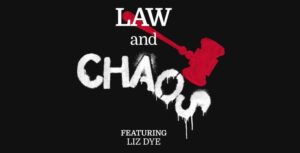September 29, 2025
Supreme Court's Shadow Docket Decision Spurs Controversy Over Racial Profiling

On September 8, the Supreme Court issued a one-paragraph order, subtly legalizing racial profiling through its shadow docket—a method increasingly scrutinized for its lack of transparency. The decision, supported by five conservative justices, stayed a lower court's injunction, which had previously halted racially based detainments by ICE agents. Justice Kavanaugh, in an unusual move, provided an explanatory concurrence that has ignited fierce debate.
Kavanaugh defended the decision, suggesting that ICE agents could reasonably question individuals based on a combination of race and location—like being Hispanic near a Home Depot—an assertion that has been met with strong criticism. Critics argue that such stops are not brief but often escalate into unlawful arrests, contradicting the protections guaranteed under the Fourth Amendment.
The case at the center of this controversy is Vasquez Perdomo v. Noem, where U.S. District Judge Maame Frimpong ruled that detaining individuals based solely on race, location, language spoken, or type of employment was unconstitutional. Despite this, Kavanaugh's view suggests that combining these factors could somehow constitute reasonable suspicion, a stance that has led to what are now being called "Kavanaugh stops."
These stops have reportedly resulted in numerous instances of U.S. citizens and legal residents being wrongfully detained and subjected to harsh treatment. Reports include a U.S. Army veteran detained for three days, a young man held for ten days without ID, and another individual arrested without even a question about his citizenship status.
In response, a new lawsuit, Escobar Molina v. Department of Homeland Security, challenges the notion that these encounters are merely "detentive stops," arguing instead that they are arbitrary arrests without probable cause. The plaintiffs in this case are pushing back against the interpretation that such practices are in line with constitutional protections.
As the Supreme Court navigates these contentious legal waters, the public and legal experts alike are watching closely. The decisions made in the coming months could redefine the boundaries of civil liberties and law enforcement's reach, setting precedents that may either curb or further endorse racial profiling under the guise of immigration control.